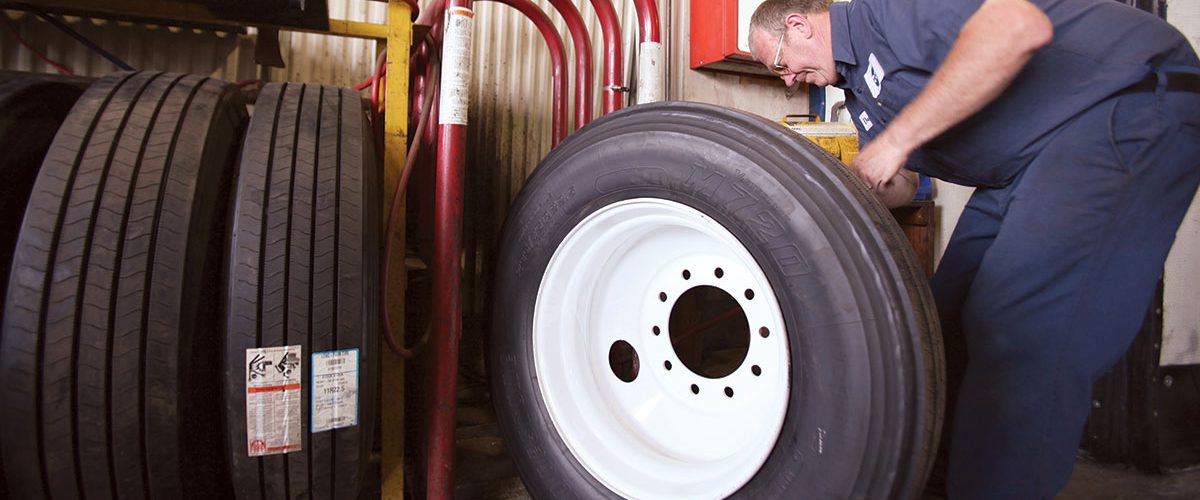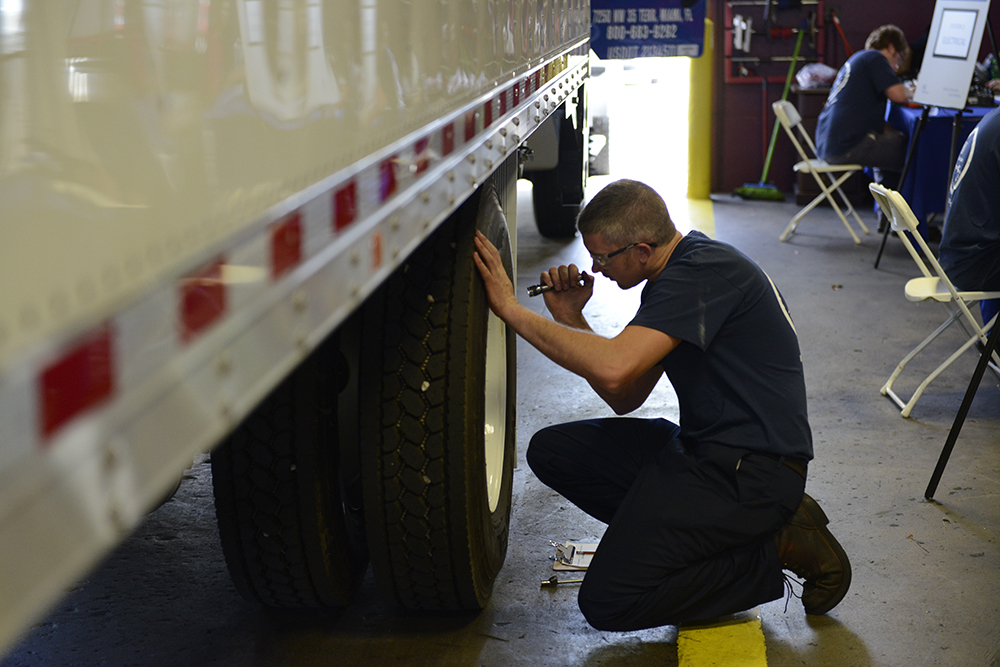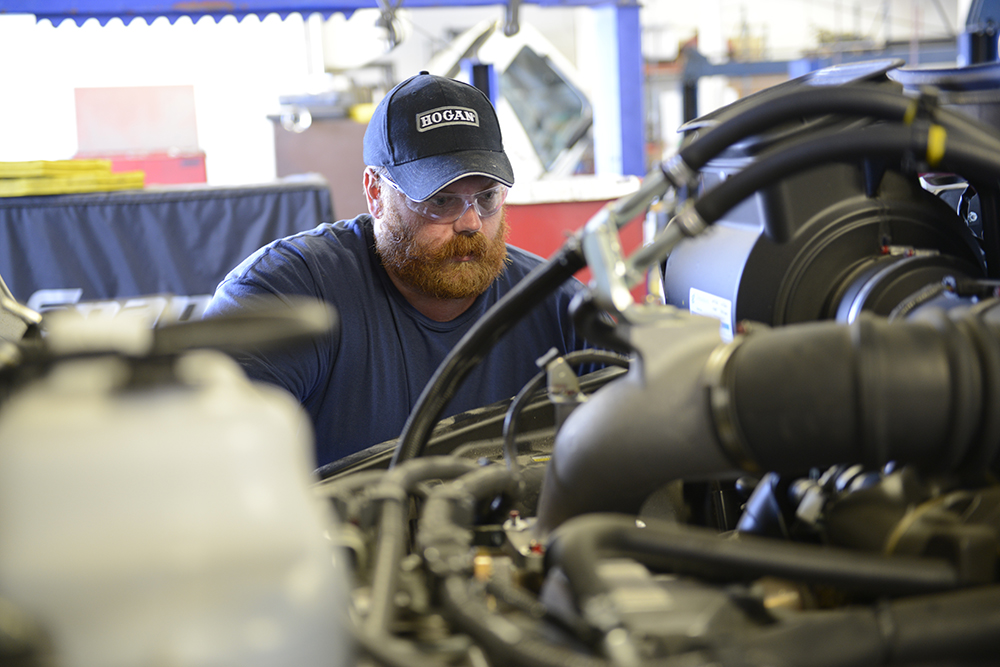Roadcheck 2023 which occurred this past May throughout the U.S., Canada, and Mexico did show some improvement over last year’s results; however, it also showed that there’s still work to be done. Numbers from the Commercial Vehicle Safety Alliance (CVSA) which conducts the event tells the story about this annual North American inspection. Out of the more than 59,000 vehicles screened, 19%, or more than 17,000, were found to have out-of-service violations, including more than 11,000 vehicles that were placed out of service until the violation could be corrected. In addition, 5.5% of drivers were removed from service, at least temporarily.
This is an improvement over 2022’s inspection when 23% of commercial vehicles and 6.4% of drivers were placed out of service. As is usually the case, issues with brakes and tires are listed as the major categories of vehicle violations, followed by cargo securement and lights. HOS violations and false logs make up the majority of driver violations.
What the numbers show is that the trajectory is moving in the right direction but we still have a way to go. For fleets, getting to the right numbers means relying on two very important practices: preventive maintenance and driver training. Fleet owners need to explore proactive measures that can help improve their fleet’s performance while ensuring compliance with safety regulations.
Preventive maintenance is your vehicle’s health check-up
As you know, regular check-ups and scheduled maintenance play a vital role in expanding the life of your truck; however, just as important is ensuring a reduction in the risk for breakdowns and accidents. By strict adherence to maintenance schedules, fleets can:
Minimize downtime – Downtime is lost time and lost revenues, so keeping trucks road-ready through ongoing and thorough maintenance is essential for a healthy balance sheet. When it comes to Roadcheck, downtime won’t be a result of a breakdown or accident, but of an out-of-service violation so make sure your vehicles are always in tip-top shape.
Enhance safety – Trucks that go through regularly scheduled maintenance are less likely to experience the kinds of mechanical failures that could lead to accidents that could jeopardize the health and safety of your drivers as well as others on the road. Avoiding accidents is always vital but even more so in these times of nuclear verdicts.
Ensure compliance – Regulations compliance matters, but especially during the annual Roadcheck where vehicles must meet the required standards. It’s not a matter of just avoiding downtime for out-of-service violations; it’s also the issues of citations and costly penalties.
Reduce costs – Fleet owners know that addressing issues before they escalate will save time and money in the long run. The need for major repairs and replacements which can be costly and disruptive can be mitigated with preventive maintenance.
Driver training never ends
As technology changes and new regulations emerge, drivers regardless of their seniority and years of experience need to implement training that improve driver skills and knowledge. Comprehensive training programs should be considered for every driver in the fleet.
Safety training – Natural disasters, weather conditions, road closures…all of these pose challenges for drivers. Every driver should know how to best deal with these and other situations to avoid accidents. However, safety training should also address each driver’s behavior behind the wheel. In-cab cameras and other technology will help identify which drivers need additional safety training.
Compliance training – Drivers are under increasing pressures, from HOS compliance to ensuring their documentation is in order. Continually reiterating the value of regulatory compliance may feel burdensome to drivers but it’s absolutely necessary for the financial health of your fleet.
Inspection training – Techs aren’t the only ones who should be checking out their fleet’s vehicles. Drivers are often the first line of defense in identifying problems before they escalate to an accident or breakdown. That’s why drivers should take a proactive stand and perform routine vehicle inspections.
Professional personality training – Your drivers are often the face of your business so how they act and react redounds directly to your company. Well-trained drivers should always show professionalism towards customers (of course), but also towards law enforcement officials and inspectors. The latter can speed up inspections and get that truck back on the road faster.
Is a third party provider an answer?
Fleets are increasing their partnerships with dedicated contract service providers as trucks become more technologically advanced and qualified technicians are hard to find. These service providers will be responsible for the training of these technicians and the needed repairs and PMs for your vehicles, letting you focus on growing your business. When it comes to drivers, the ever-present shortage is a challenge that might be helped by partnering with driver training schools. These school have the expertise and access to the latest industry knowledge and can offer training resources tailored to your fleet’s needs.
The reality is Roadcheck 2024 is less then a year away. The time to prepare is now.





